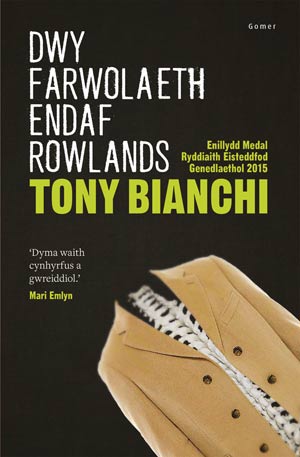Review: Dwy Farwolaeth Endaf Rowlands and Norte
From Planet 222

Lisa Sheppard reviews
Dwy Farwolaeth Endaf Rowlands by Tony Bianchi
and Norte by Jon Gower

Gomer, £8.99
Tony Bianchi and Jon Gower are no strangers to broadening the horizons and pushing the boundaries of contemporary Welsh-language fiction. Their latest offerings, Bianchi’s Dwy Farwolaeth Endaf Rowlands (The Two Deaths of Endaf Rowlands) and Gower’s Norte, are no exception. Although set in quite different worlds, the language, structure and narrative of both novels blur the boundaries between the strange and the familiar, the ordinary and the extraordinary, and engage with more universal themes than might ordinarily be expected of the Welsh-language novel.
Readers acquainted with Bianchi’s oeuvre in both Welsh and English will not immediately feel that they are in uncharted territory. A number of familiar motifs appear here: a strained father-son relationship lies at the novel’s centre, and aficionados might notice that this is not Morecambe and Wise’s first appearance (see the earlier Cyffesion Geordie Oddi Cartref (Confessions of a Geordie Exile), 2010). The novel, not unusually for him, is set in Cardiff, but this time explores the city’s geography in some detail; indeed, we are given a tour of the capital in a style reminiscent of more populist writers such as Llwyd Owen. It is emphatically not, however, a departure from Bianchi’s ambiguous, subtle prose. As the main character says of one of his father’s stories, ‘magu ystyr wnaeth hi’ – meaning is reared over time in this story too.
Sign in to read more